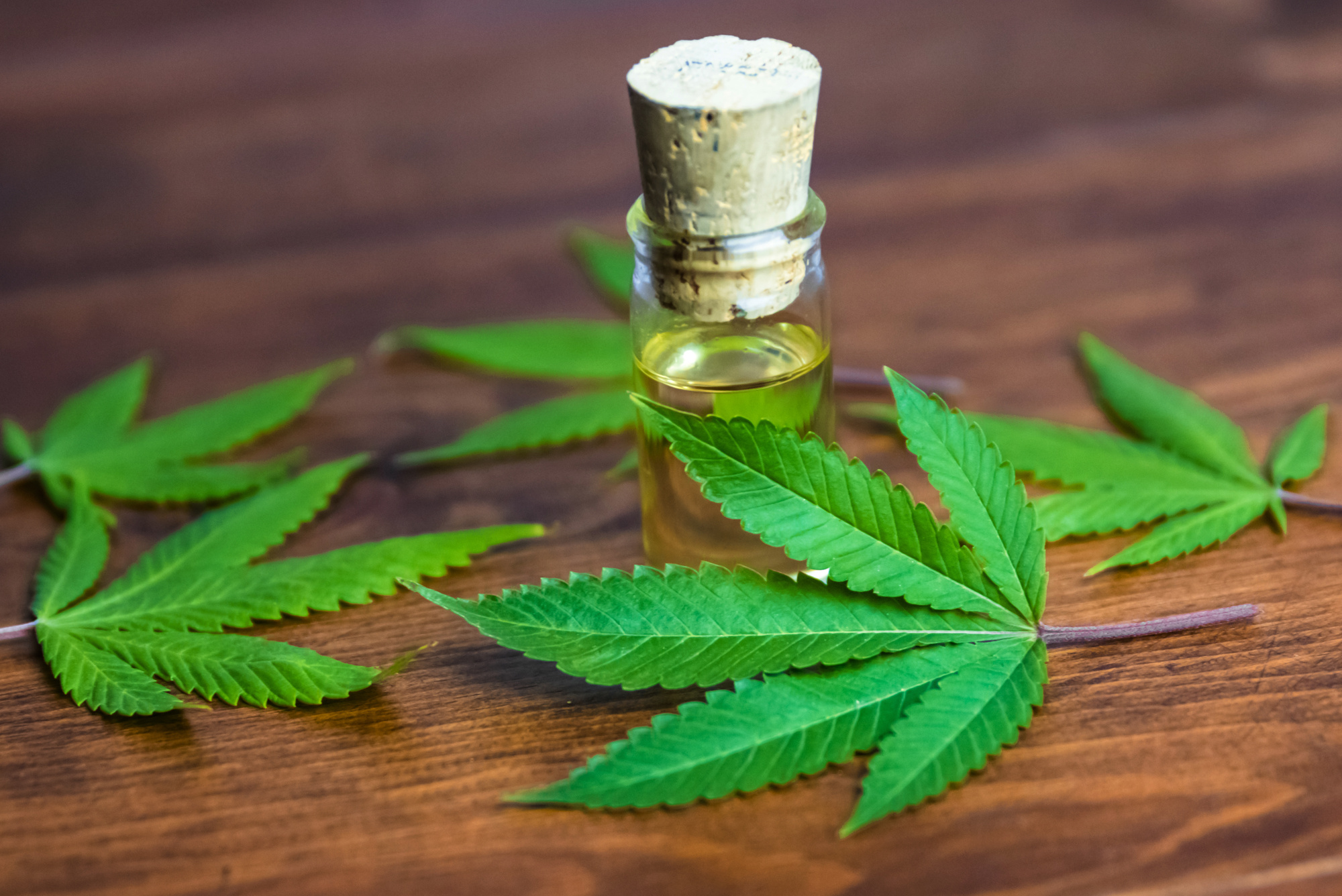
What Is CBD And Does It Work?
Introduction
CBD, short for cannabidiol, has gained significant attention in recent years for its potential therapeutic benefits. This comprehensive guide aims to provide a detailed understanding of what CBD is, how it works in the body, and the current scientific evidence regarding its efficacy. By exploring the research and available information, readers can make informed decisions about CBD and its potential uses.
Table of Contents:
I. Understanding CBD
- What is CBD?
- CBD vs. THC: Key Differences
- Legal Status of CBD
II. How CBD Works in the Body
- The Endocannabinoid System (ECS)
- CBD’s Interaction with the ECS
- Other Mechanisms of CBD Action
III. Scientific Evidence for CBD’s Efficacy
- Epilepsy and Seizure Disorders
- Chronic Pain Management
- Anxiety and Stress Reduction
- Sleep Disorders
- Inflammation and Autoimmune Conditions
- Potential Anti-Cancer Effects
- Other Conditions and Symptom Management
IV. Factors Affecting CBD’s Efficacy
- Dosage and Administration
- Quality and Source of CBD Products
- Individual Variations and Genetics
- Potential Interactions with Medications
V. Common Uses of CBD
- Pain Management
- Anxiety and Stress Relief
- Sleep Improvement
- Neurological Disorders
- Skin Conditions
- Athletic Performance and Recovery
VI. Safety and Potential Side Effects of CBD
- General Safety Profile
- Potential Side Effects
- Drug Interactions and Precautions
- Quality Control and Regulation
VII. CBD Products: Types and Consumption Methods
- CBD Oils and Tinctures
- CBD Edibles and Capsules
- Topical CBD Products
- Inhalation Methods
- Choosing the Right CBD Product
VIII. Considerations and Precautions
- Consultation with Healthcare Professionals
- Research and Education
- Understanding Personal Needs and Goals
IX. Frequently Asked Questions (FAQs)
- Is CBD psychoactive?
- Will CBD show up on drug tests?
- Can you overdose on CBD?
- Is CBD addictive?
- How long does it take for CBD to work?
X. Conclusion
I. Understanding CBD:
A. What is CBD?
CBD is a naturally occurring compound found in the cannabis plant. It is one of the many cannabinoids present in the plant and is non-intoxicating.
B. CBD vs. THC: Key Differences:
CBD and THC are both cannabinoids found in cannabis, but they have different effects. Unlike THC, CBD does not produce psychoactive effects or a “high.”
C. Legal Status of CBD:
The legal status of CBD varies across countries and regions. It is essential to understand the specific regulations in your jurisdiction before purchasing or using CBD products.
II. How CBD Works in the Body:
A. The Endocannabinoid System (ECS):
The ECS is a complex biological system present in the human body. It plays a crucial role in regulating various physiological processes, including mood, pain sensation, immune function, and more.
B. CBD’s Interaction with the ECS:
CBD interacts with receptors of the ECS, primarily the CB1 and CB2 receptors. It influences the ECS’s functioning, potentially modulating processes related to pain perception, inflammation, and mood regulation.
C. Other Mechanisms of CBD Action:
CBD also interacts with other non-cannabinoid receptors and neurotransmitter systems, such as serotonin and vanilloid receptors. These interactions contribute to CBD’s diverse potential effects.
III. Scientific Evidence for CBD’s Efficacy:
A. Epilepsy and Seizure Disorders:
CBD has shown remarkable effectiveness in reducing seizure frequency in certain forms of epilepsy, leading to the FDA approval of a CBD-based medication for specific seizure disorders.
B. Chronic Pain Management:
Research suggests that CBD may have analgesic properties and can potentially alleviate chronic pain associated with conditions such as arthritis, multiple sclerosis, and neuropathic pain.
C. Anxiety and Stress Reduction:
CBD has demonstrated anxiolytic effects in preclinical and clinical studies, showing promise as a potential treatment for anxiety disorders, including generalized anxiety disorder, social anxiety disorder, and post-traumatic stress disorder.
D. Sleep Disorders:
CBD may help improve sleep quality and reduce insomnia symptoms. It has shown potential in addressing sleep issues related to anxiety, chronic pain, and other conditions.
E. Inflammation and Autoimmune Conditions:
Preclinical studies suggest that CBD may possess anti-inflammatory properties, making it potentially beneficial for managing conditions such as rheumatoid arthritis, Crohn’s disease, and multiple sclerosis.
F. Potential Anti-Cancer Effects:
While further research is needed, early studies indicate that CBD may have anti-tumor effects and can potentially inhibit the growth and spread of certain types of cancer cells.
G. Other Conditions and Symptom Management:
CBD’s therapeutic potential extends to a wide range of conditions, including neurodegenerative disorders (e.g., Parkinson’s and Alzheimer’s), substance abuse disorders, acne, and more. However, more research is needed to establish conclusive evidence.
IV. Factors Affecting CBD’s Efficacy:
A. Dosage and Administration:
The optimal CBD dosage varies depending on factors such as the individual’s weight, metabolism, condition being treated, and desired effects. Finding the right dosage may require some experimentation.
B. Quality and Source of CBD Products:
The quality and source of CBD products play a crucial role in their efficacy. It is important to choose reputable brands that undergo third-party testing to ensure product purity, potency, and absence of contaminants.
C. Individual Variations and Genetics:
Individual responses to CBD may vary due to factors such as genetics, metabolism, and overall health. Some individuals may be more sensitive to CBD, while others may require higher doses for noticeable effects.
D. Potential Interactions with Medications:
CBD can interact with certain medications, especially those metabolized by liver enzymes. It is essential to consult with a healthcare professional before using CBD alongside other medications to minimize the risk of potential interactions.
V. Common Uses of CBD:
A. Pain Management:
CBD may offer relief from chronic pain associated with conditions such as arthritis, fibromyalgia, migraines, and neuropathic pain.
B. Anxiety and Stress Relief:
CBD shows promise in reducing symptoms of anxiety disorders, including generalized anxiety, social anxiety, and panic disorder. It may also help manage stress and promote relaxation.
C. Sleep Improvement:
CBD’s potential calming effects may contribute to better sleep quality and help alleviate insomnia symptoms.
D. Neurological Disorders:
CBD research focuses on various neurological conditions, including epilepsy, multiple sclerosis, Parkinson’s disease, and Alzheimer’s disease.
E. Skin Conditions:
CBD’s anti-inflammatory and antioxidant properties make it a potential ingredient in skincare products aimed at managing acne, psoriasis, eczema, and other skin conditions.
F. Athletic Performance and Recovery:
CBD is increasingly used by athletes for potential benefits such as pain relief, inflammation reduction, and exercise-induced stress management.
VI. Safety and Potential Side Effects of CBD:
A. General Safety Profile:
CBD is generally well-tolerated, and significant adverse effects are rare. However, it may cause mild side effects such as fatigue, dry mouth, diarrhea, and changes in appetite.
B. Potential Side Effects:
While rare, CBD can interact with certain medications, and high doses may lead to drowsiness, digestive issues, or changes in liver enzyme levels. It is crucial to start with low doses and monitor for any adverse effects.
C. Drug Interactions and Precautions:
CBD can interact with medications that are metabolized by liver enzymes, potentially affecting their efficacy or side effects. It is essential to consult with a healthcare professional before combining CBD with other medications.
D. Quality Control and Regulation:
Due to the increasing popularity of CBD, it is crucial to choose reputable brands that adhere to quality control standards, provide transparent lab reports, and follow legal regulations.
VII. CBD Products: Types and Consumption Methods:
A. CBD Oils and Tinctures:
CBD oils and tinctures are popular and versatile forms of CBD products, often taken sublingually for faster absorption.
B. CBD Edibles and Capsules:
CBD-infused edibles and capsules offer a convenient and discreet way to consume CBD, with effects typically lasting longer due to slower absorption.
C. Topical CBD Products:
Topical creams, lotions, and balms infused with CBD are commonly used for localized relief, such as muscle soreness, joint pain, or skin conditions.
D. Inhalation Methods:
CBD can be inhaled through vaporization or smoking, with effects typically felt quickly but lasting for a shorter duration.
E. Choosing the Right CBD Product:
Consider factors such as the desired effects, onset and duration of effects, convenience, and personal preferences when selecting a CBD product.
VIII. Considerations and Precautions:
A. Consultation with Healthcare Professionals:
It is advisable to consult with a healthcare professional before using CBD, especially if you have underlying medical conditions, are taking medications, or are pregnant or breastfeeding.
B. Research and Education:
Stay informed about the latest research, regulations, and recommendations surrounding CBD. Understand the potential benefits and limitations to make informed decisions.
C. Understanding Personal Needs and Goals:
Every individual is unique, and CBD may not be suitable for everyone. Consider your specific health needs, goals, and potential interactions with other treatments before incorporating CBD into your wellness routine.
IX. Frequently Asked Questions (FAQs):
- Is CBD psychoactive?
- Will CBD show up on drug tests?
- Can you overdose on CBD?
- Is CBD addictive?
- How long does it take for CBD to work?
X. Conclusion
CBD shows promising potential as a therapeutic compound with various applications. While scientific evidence supports its efficacy for certain conditions, more research is needed to fully understand its mechanisms of action and benefits. As CBD continues to gain attention, it is crucial to approach its use with caution, seek reputable sources, and consult with healthcare professionals for personalized guidance.
- Breeze Disposable Vape Review: Puff Variety and Smooth Satisfaction - October 10, 2023
- What Is CBD And Does It Work? - July 5, 2023
